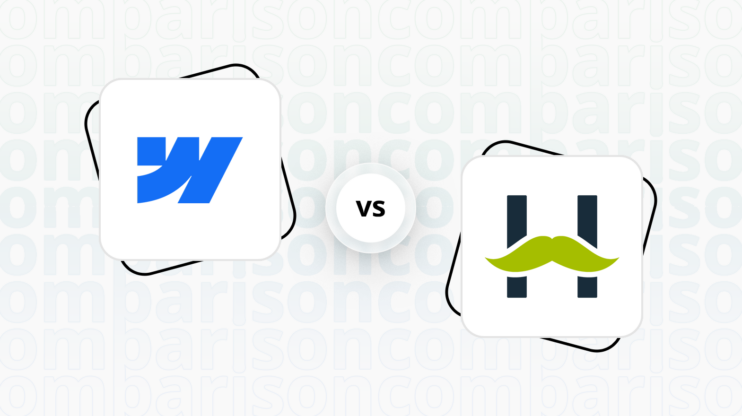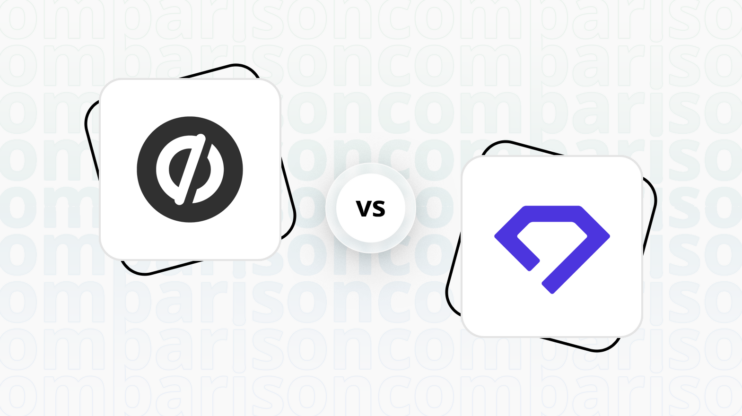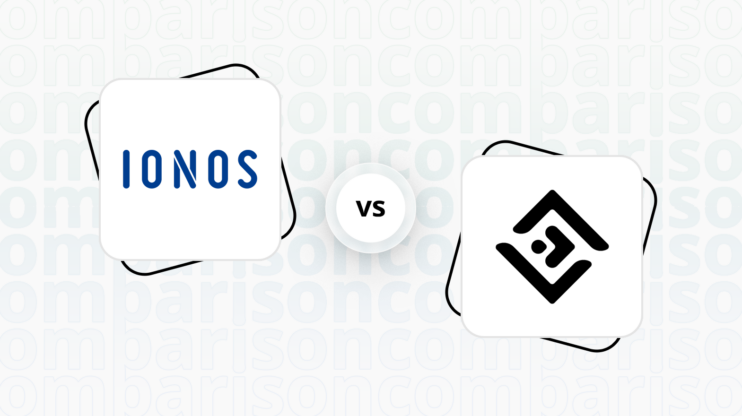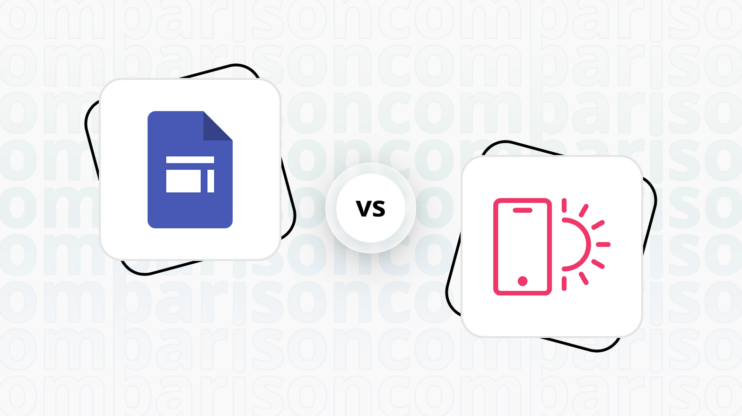Final verdict
Jimdo and Hocoos both offer user-friendly website building solutions, but they cater to different needs and preferences.
-
Jimdo (Overall Grade: 7.2/10)
is ideal for users seeking simplicity and ease of use. It offers a range of templates and customization options, making it suitable for personal blogs, portfolios, and small businesses. Jimdo excels in customer support, security, and user management, providing a reliable platform for those with basic computer skills or limited time. However, it may not be the best choice for more complex websites or advanced customization needs. -
Hocoos (Overall Grade: 5.6/10)
focuses on providing an AI-driven website building experience. It offers a variety of customizable templates and features such as ecommerce integration, SEO optimization, and mobile responsiveness. Hocoos stands out for its ease of use and AI capabilities, making it a good option for users who want to quickly create a professional-looking website without technical expertise. However, it falls short in areas like customer support, hosting quality, and user management compared to Jimdo.

|

|
|
|---|---|---|
|
Design functionalities & templates |
7.2 |
7.2 |
|
Ease of use |
8.0 |
8.1 |
|
Ecommerce |
7.0 |
7.4 |
|
Website Editors |
7.8 |
7.7 |
|
Product testing options |
6.4 |
7.5 |
|
Price |
7.5 |
7.8 |
|
Hosting quality |
6.7 |
2.4 |
|
Website speed optimization |
7.6 |
6.2 |
|
Plugins and integrations |
7.4 |
6.3 |
|
Marketing features |
7.2 |
7.0 |
|
Customer support |
6.8 |
3.0 |
|
Security |
8.3 |
4.5 |
|
AI capabilities |
6.0 |
7.3 |
|
User Management |
5.8 |
0.0 |
Best for ecommerce
 7.0
7.0
 7.4
7.4
Verdict
: Jimdo and Hocoos both offer solid ecommerce functionalities, but Hocoos slightly edges out Jimdo with its advanced customization and AI-driven features.
-
Jimdo
: Jimdo is a user-friendly platform ideal for small businesses and individuals looking to set up an online store quickly. It offers essential ecommerce features like inventory tracking, discount codes, and email marketing without transaction fees. However, when comparing Jimdo vs Hocoos, Jimdo’s simplicity might limit more advanced ecommerce needs. -
Hocoos
: Hocoos leverages AI technology to create customized websites, making it a strong contender for those seeking a more tailored ecommerce experience. It provides comprehensive product management, order processing, and marketing tools. Hocoos is particularly suitable for users who want a professional-looking store with minimal effort.
Best for informational & business websites
 7.4
7.4
 7.4
7.4
Verdict
: Both Jimdo and Hocoos score equally well for informational business websites, each with unique strengths that cater to different user needs.
-
Jimdo
: Jimdo is a versatile website builder known for its simplicity and ease of use, making it ideal for users with basic computer skills or limited time. It offers a range of templates and customization options, suitable for various industries. Jimdo’s strong focus on security, comprehensive hosting services, and user-friendly learning resources make it a reliable choice for creating professional-looking informational websites. -
Hocoos
: Hocoos stands out with its AI-driven features and user-friendly interface, allowing users to create and customize websites effortlessly. It offers a wide variety of templates and designs, catering to different industries and purposes. Hocoos excels in ease of use, making it perfect for users with no coding or design experience. Its focus on SEO optimization and mobile responsiveness ensures a successful online presence. When comparing Jimdo vs Hocoos, Hocoos is particularly appealing for those who prioritize simplicity and AI-driven customization.
Detailed comparison
Design functionalities & templates
Design FunctionalitiesRepresents how well each platform allows for creative design and customization of websites.Score Components:
- Template Variety (30%): Range and quality of design templates.
- Customization (30%): Flexibility and options for design alterations.
- User Interface (20%): Ease and intuitiveness of the design process.
- Responsiveness (10%): Adaptability to different devices and screen sizes.
- Innovation (10%): Unique design features and tools.
 7.2
7.2
 7.2
7.2
Winner: Tie.
Both Jimdo and Hocoos offer a range of design functionalities and templates, catering to various user needs and preferences.
Jimdo offers a diverse range of templates suitable for various industries and user preferences, with options to preview and select templates easily. The platform allows flexibility in changing templates for existing websites and also provides a “Blank Template” for custom designs, catering to both beginners and advanced users.


On the other hand, Hocoos offers a wide variety of templates and designs for their website builder. With over 190 professionally designed templates to choose from, users can easily find a design that suits their needs and preferences. The templates are available for various industries and purposes, including business, ecommerce, portfolio, and more. Additionally, Hocoos regularly updates their template library to ensure that users have access to the latest design trends and styles. Whether you’re a beginner or an experienced web designer, Hocoos provides a range of options to create a visually appealing and functional website.
Get a head start on website creation with AI
Create a custom website tailored to your business needs 10X faster with 10Web AI Website Builder!
Ease of use
Ease of useReflects the platform’s overall user-friendliness.Score
Components:
- Learning curve (40%): Quickness and ease of getting started.
- Interface design (30%): Simplicity and intuitiveness of layout.
- User guidance (20%): Quality of tutorials and support.
- Flexibility (10%): Adaptability to various user skills.
 8.0
8.0
 8.1
8.1
🏆 Winner: Hocoos
. With a score of 8.1, Hocoos slightly edges out Jimdo, which scored 8.0. Hocoos is recognized for its user-friendly interface and AI-driven features, making it easy for users with no coding or design experience to create and customize websites. Jimdo, while also user-friendly, may not be ideal for more complex websites or those requiring advanced customization.
Learning Resources
🏆 Winner: Jimdo
. Jimdo offers user-friendly learning resources and tools that cater to both beginners and those with some experience in website design. Hocoos, on the other hand, lacks traditional learning resources, focusing more on simplicity and AI content generation.
For ecommerce
EcommerceMeasures the platform’s effectiveness in supporting online business activities.Score Components:
- Ecommerce themes and templates (20%): Variety and design of templates.
- Product management (25%): Ease of managing and organizing products.
- Payment options (25%): Variety and convenience of payment methods.
- Ecommerce features (20%): Features for managing an ecommerce store.
- Integration (10%): Compatibility with external e-commerce tools and services.
 7.0
7.0
 7.4
7.4
When it comes to ecommerce, both Jimdo and Hocoos offer a range of features to help users set up and manage their online stores. However, they differ in their approach to website design and customization.

|

|
|
|---|---|---|
|
Ecommerce themes and templates |
6.5 |
6.0 |
|
Product page customization |
6.8 |
7.0 |
|
Payment processing and commissions |
7.5 |
6.5 |
|
POS capabilities |
5.0 |
5.5 |
|
Payment gateways |
7.0 |
7.0 |
|
Product numbers |
6.0 |
6.5 |
|
Additional ecommerce features |
6.5 |
7.0 |
Jimdo ecommerce features:
- Product details and variations
- Inventory tracking
- No transaction fees
- Discount codes and promotions
- Email marketing
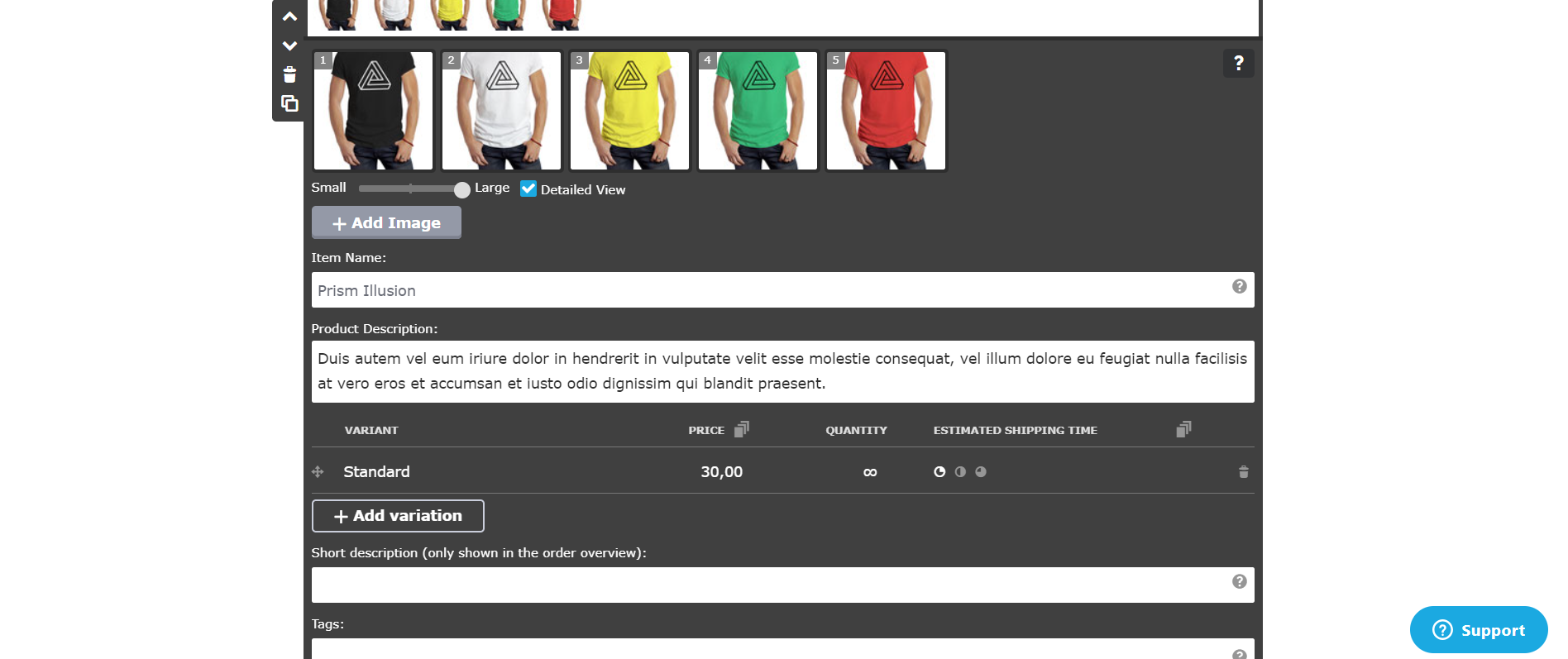
Hocoos ecommerce features:
- Product management
- Order management
- Payment processing
- Shipping and Logistics
- Marketing and SEO
- Analytics and reporting
- Customizability and Integrations
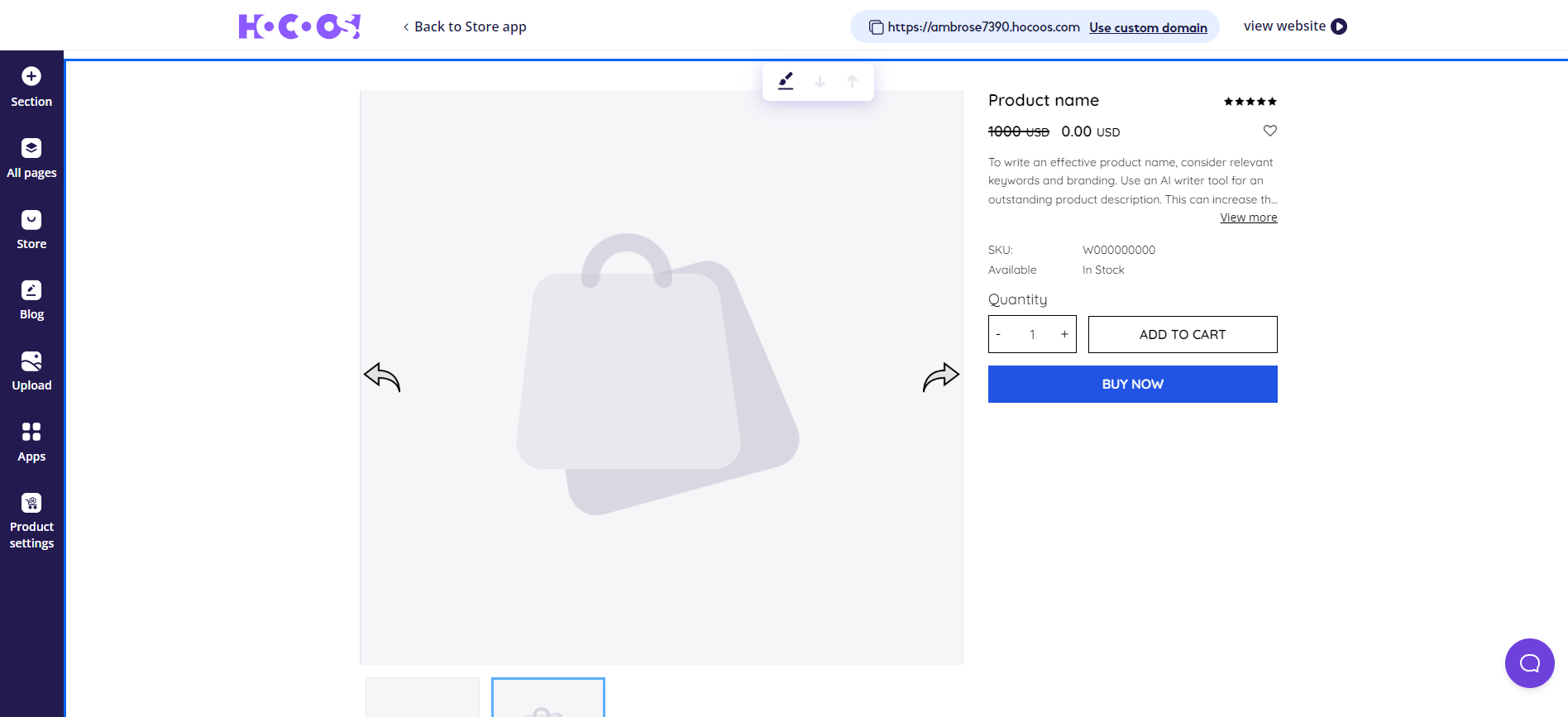
Ecommerce themes & templates
Jimdo’s ecommerce templates offer a diverse range of pre-designed themes, ensuring a mobile-friendly and smooth shopping experience. The drag-and-drop interface allows for easy customization of colors, fonts, and layouts, while templates focus on showcasing products with dedicated sections for images, descriptions, and clear calls to action. The benefits include a fast setup without coding, a professional look, a focus on content creation, and multiple options to match your brand and audience.
On the other hand, Hocoos does not rely on traditional templates for website creation, including ecommerce sites. Instead, it utilizes AI technology to generate unique and customized websites based on the user’s specific inputs.
Product page customization
Customizing a product page on Jimdo involves using its user-friendly interface to personalize various elements. You can edit text, add images, adjust layouts, and modify design elements like colors and fonts to showcase your products effectively. This customization enhances the visual appeal and functionality of your online store, aiming to improve user experience and boost sales. Jimdo also offers additional features such as SEO tools and mobile responsiveness to ensure your product page performs well across different devices and search engines.
Hocoos enables the creation and editing of professional-looking product pages, tailored to enhance the appeal of your products to your target audience, ultimately aiming to boost sales. Additionally, Hocoos allows for easy setup of product variations, including different sizes, colors, or attributes, empowering you to customize offerings, manage pricing, and ensure availability for each variation.
Payment processing
Jimdo facilitates payment processing through various popular gateways like PayPal, Stripe, Mollie, and more, depending on your location and plan. While Jimdo doesn’t impose transaction fees, individual payment gateways may have their own charges, typically ranging from 2% to 3% of the transaction amount plus a fixed fee. Additionally, certain Jimdo plans may offer free transactions per month, providing flexibility for users based on their plan details.
Hocoos simplifies website creation through AI-driven features, offering customizable websites tailored to user preferences. Its platform allows quick website setup by answering a few questions, catering to various business needs such as blogs, online stores, and bookings. Users can personalize their websites using a user-friendly editor for layout, colors, and content. Additionally, Hocoos facilitates online presence with hosting services and integrates payment methods like PayPal and Stripe for seamless management of transactions and inventory.
Website Editors
Website EditorsEvaluates the platforms’ website building and editing capabilities.Score Components:
- Customization tools (40%): Range and power of editing features.
- Editor usability (30%): User experience within the editor.
- Design flexibility (20%): Freedom in layout and design changes.
- Update and maintenance ease (10%): Simplicity of updating and maintaining the site.
 7.8
7.8
 7.7
7.7
🏆
Winner: Jimdo
. Jimdo, with a score of 7.8, offers two main modes: Jimdo Dolphin and Jimdo Creator. Dolphin, an AI-driven tool, is ideal for beginners and creates websites based on user responses to a series of questions, streamlining the web design process. On the other hand, Jimdo Creator provides a more traditional website building experience with greater customization options, including a drag-and-drop editor and HTML widgets, catering to users seeking more control over their site’s design.
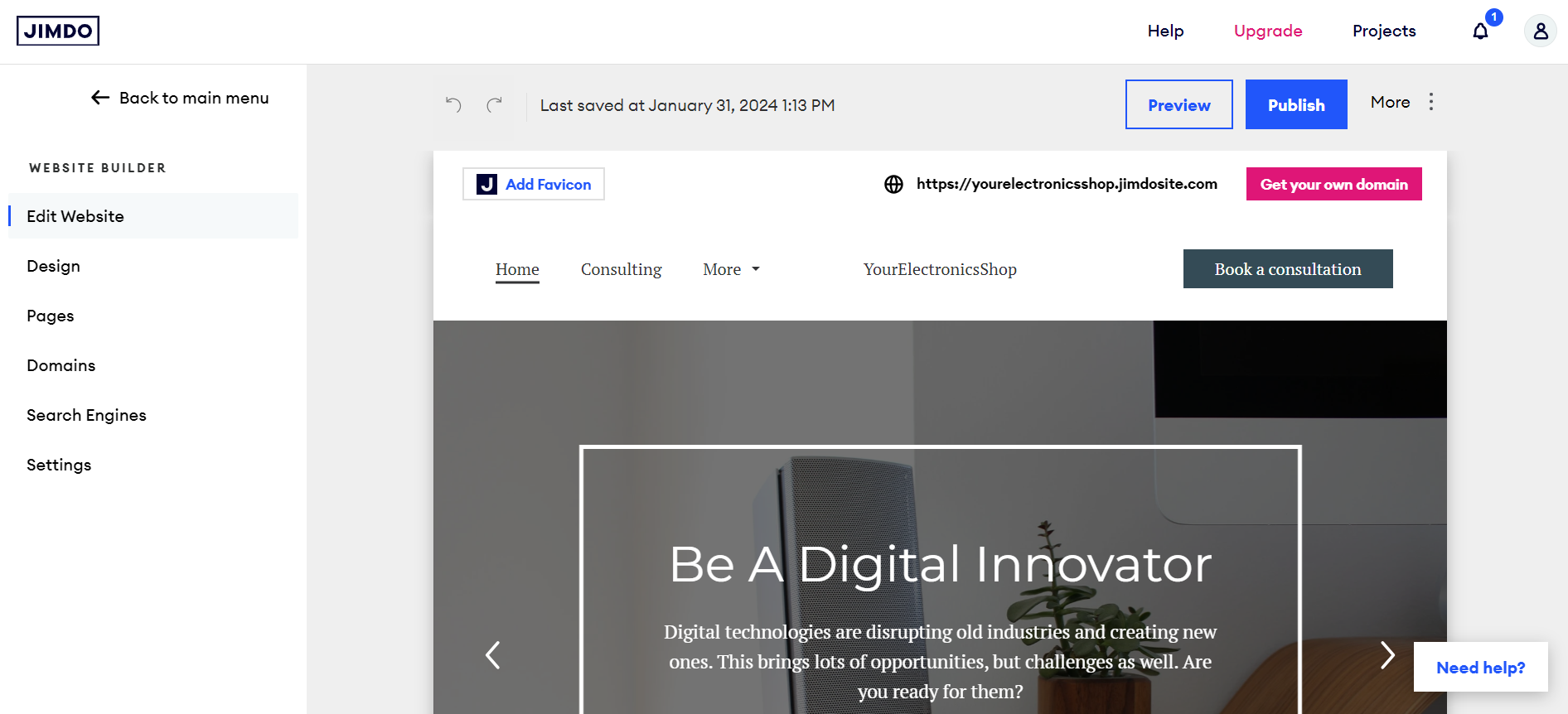
Hocoos’s editor, scoring 7.7, is an AI-driven website builder that simplifies the creation of personalized websites through a unique process that requires users to answer eight simple questions. This platform utilizes advanced AI algorithms to automatically generate a custom website tailored to the user’s business needs, including design, content, and images. It features an easy-to-use editor for further customization and offers AI-powered tools for content creation, logo design, and more, making it accessible to users of all technical skill levels.
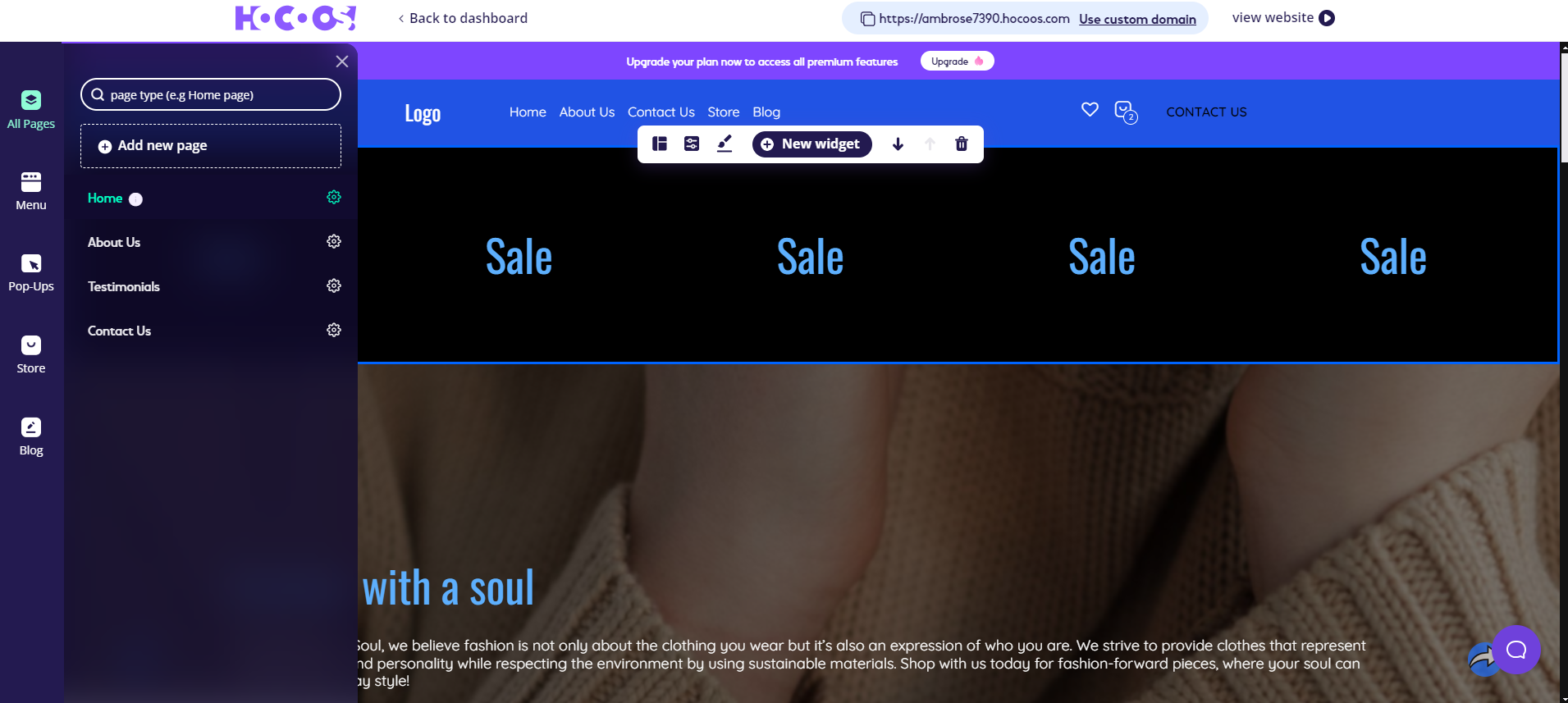
Mobile editor/app
 8.0
8.0
 0
0
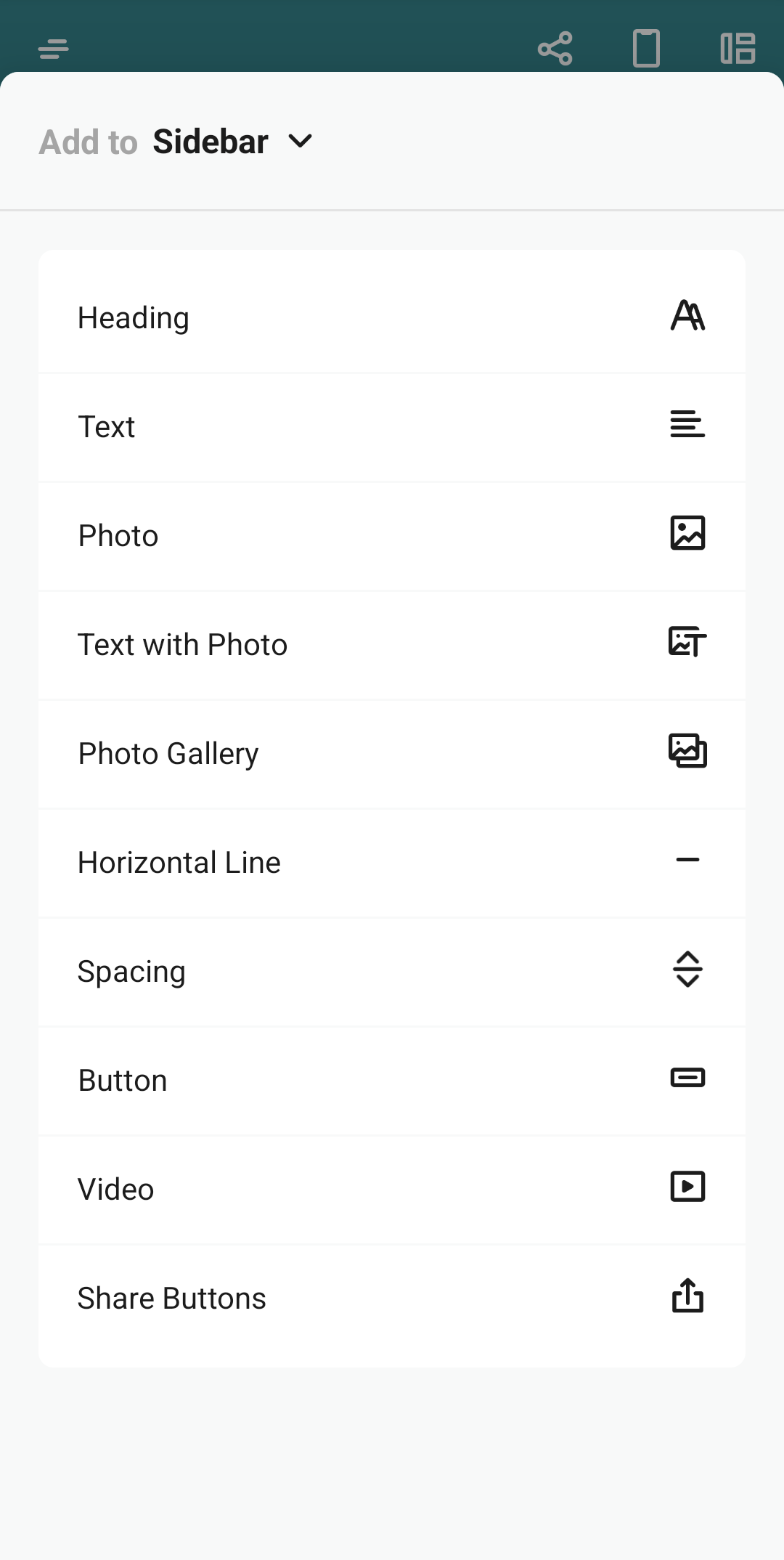
🏆
Winner: Jimdo
. Both Jimdo and Hocoos offer user-friendly website builders, but only Jimdo provides a mobile editor app. This app allows users to create and manage their websites directly from their smartphones or tablets, providing a convenient way to edit and update your site on the go, including adding or modifying content, adjusting design elements, and managing your online store.
On the other hand, Hocoos does not have a dedicated mobile app, which limits its accessibility and convenience for users who prefer to manage their websites on mobile devices.
Product testing options
Product Testing OptionsAssesses the options for trying out platform features before commitment.Score Components:
- Trial quality (40%): Extent and usefulness of the trial or free version.
- Feature accessibility (30%): How many features are available to test.
- Trial duration (20%): Length of the trial period.
- Ease of transition (10%): Smoothness of moving from trial to paid plans.
 6.4
6.4
 7.5
7.5
Overall Result
:
Hocoos Wins
. Hocoos scores 7.5 in product testing options, slightly higher than Jimdo’s 6.4. Both platforms offer a free version, but Hocoos allows users to test some premium features even with the free plan. Jimdo, on the other hand, requires users to subscribe to a paid plan to test advanced features, although it does offer a 14-day money-back guarantee.

|

|
|
|---|---|---|
|
Free Plan |
Yes | Yes |
|
Trial Duration |
No (14-day money-back guarantee) | No |
|
Testing Premium Features |
With paid plans |
Some features with free plan |
|
Money-Back Guarantee |
14 days | 14 days |
Price
PriceLooks at the cost-effectiveness and value for money of each platform.Score Components:
- Plan value (40%): What each pricing tier offers.
- Transparency and clarity (30%): Clearness of pricing structures.
- Flexibility of plans (20%): Range of options to suit different budgets.
- Hidden costs (10%): Additional expenses not included in the plan.
 7.5
7.5
 7.8
7.8
Jimdo and Hocoos have similar pricing scores, with Hocoos slightly ahead.
Both platforms offer a range of plans to suit different needs, from free or low-cost options for individuals or small projects, to more comprehensive plans for businesses. Neither platform offers an enterprise plan.

|

|
|
|---|---|---|
|
Free |
Play ($0/month): Basic, entry-level plan offering limited features, ideal for testing Jimdo’s capabilities. Includes 500MB storage and up to 5 website pages. Limited ecommerce functionality. |
Free ($0/month): Limited features, ideal for personal projects or trying out the platform. Includes free website hosting, a limited booking system, a blog (without AI blogging), 15 image uploads, and 20 uses of AI content generation. |
|
$0-$10 |
Start ($9/month): Aimed at small projects or businesses just starting out. Provides 5GB of storage and up to 10 website pages, along with SEO tools for online visibility. Not directly focused on ecommerce. Value for price: 6.0 |
No offering at this amount. |
|
$10-$15 |
Grow ($15/month): Targets growing businesses needing more space and features. Offers more flexibility but still lacks dedicated ecommerce capabilities compared to the Business plan. Provides 20GB bandwidth with up to 50 website pages. Value for price: 7.0 Basic ($15/month): Up to five forwarding email addresses, up to 10 website pages, convenient payment methods. Value for price: 6.5 |
Premium ($15/month): All features, including a free custom domain name, online payments, 600,000+ stock images, marketing integrations, unlimited image uploads, unlimited AI features, a custom email address, and email marketing. Value for price: 9.0 |
|
$15-$20 |
Business ($19/month): Designed for small to medium-sized online stores, offering ecommerce features without transaction fees. Includes selling on Facebook and Instagram, and various payment options. And up to 50 website pages. Value for price: 8.0 |
No offering at this amount. |
|
$30-$39 |
VIP ($39/month): Provides comprehensive features for large or expanding online stores, including unlimited storage and priority support and unlimited website pages. Includes professional design review and no transaction fees. Value for price: 9.0 Unlimited ($39/month): Offers unlimited bandwidth and storage, up to 20 forwarding email addresses and unlimited website pages. Includes priority support and professional design reviews. Value for price: 9.5 |
No offering at this amount. |
|
$39+ |
VIP ($39/month): Provides comprehensive features for large or expanding online stores, including unlimited storage and priority support and unlimited website pages. Includes professional design review and no transaction fees. Value for price: 9.0 Unlimited ($39/month): Offers unlimited bandwidth and storage, up to 20 forwarding email addresses and unlimited website pages. Includes priority support and professional design reviews. Value for price: 9.5 |
No offering at this amount. |
location. As a result in rare cases the prices displayed here can differ from the ones you see on their
websites.
Hosting quality
Hosting
qualityExamines the reliability and performance of the hosting solutions.Score Components:
- Uptime (40%): Consistency and reliability of website availability.
- Speed (30%): Loading times and performance.
- Bandwidth and storage (20%): Sufficiency of resources provided.
- Data centers (10%): Quality and distribution of hosting infrastructure.
 6.7
6.7
 2.4
2.4
Winner: Jimdo
. Jimdo offers a more reliable and detailed hosting service, with shared, cloud, and managed hosting options, and a 99.5% uptime. Although it doesn’t offer an uptime guarantee, it provides daily backups for data safety. Hocoos, on the other hand, lacks explicit details about its hosting services, including the type of hosting, uptime statistics, and data center locations, leading to a lower hosting quality score.

|

|
|
|---|---|---|
|
Do they offer hosting? |
Yes, included in all plans |
Yes, included in all plans |
|
Data Centers: |
Not publicly disclosed, but utilizes a distributed network of secure facilities across multiple regions |
No information provided |
|
Type of hosting: |
Shared Hosting, Cloud Hosting, Managed Hosting |
Not specified |
|
Uptime: |
99.5% |
Not provided |
|
Uptime Guarantee: |
No |
No |
Website Speed Optimization
Website Speed OptimizationEvaluates optimization of website loading timesScore Components:
- PageSpeed Score (30%): Google’s score indicating performance optimization.
- Loading Time (30%): The average time until a website is fully interactive.
- Mobile Optimization (15%): Optimization effectiveness for mobile devices.
- Resource Optimization (15%): Optimizing images, scripts, and other heavy resources.
- CDN Usage (10%): Use of CDN to enhance speed across geolocations.
 7.6
7.6
 6.2
6.2
🏆 Winner: Jimdo
Both Jimdo and Hocoos prioritize website performance and page speed, but Jimdo has a slight edge due to its comprehensive optimization strategies and focus on Core Web Vital improvements.

|

|
|
|---|---|---|
|
Focus |
Content Optimization, CDN, Image optimization, Caching, Mobile Responsive design |
CDN, Minimization of HTTP Requests, Caching |
|
Performance Tools |
Google Lighthouse, PageSpeed Insights |
Google PageSpeed Insights Integration |
|
Key Strategies |
Content Optimization, CDN, Image optimization, Caching, Mobile Responsive design |
CDN, Minimization of HTTP Requests, Caching |
|
Load Times |
Varies widely, dependent on optimization |
Varies widely, depending on the optimization and user’s location |
|
Page Speed Scores Range |
Scores vary; influenced by plugins, images |
Varies widely, depending on the optimization and user’s location |
|
Core Web Vitals Improvement |
Optimizing LCP, Enhancing FID, Improving CLS |
No info available |
Jimdo’s approach to enhancing site speed includes content optimization, use of Content Delivery Networks (CDN), image optimization, caching, and mobile responsive design. These strategies, combined with the use of performance tools like Google Lighthouse and PageSpeed Insights, help Jimdo websites achieve optimal load times and PageSpeed scores. Jimdo also places a strong emphasis on improving Core Web Vitals, specifically optimizing Largest Contentful Paint (LCP), enhancing First Input Delay (FID), and improving Cumulative Layout Shift (CLS).
On the other hand, Hocoos also prioritizes website performance and page speed, with strategies including the use of CDN, minimization of HTTP requests, and caching. However, there’s no available information about Hocoos’ efforts to improve Core Web Vitals, which gives Jimdo an edge in this comparison. The load times and PageSpeed scores for Hocoos websites vary widely, depending on the optimization and the user’s location.
Get a head start on website creation with AI
Create a custom website tailored to your business needs 10X faster with 10Web AI Website Builder!
Plugins and integrations
Plugins and integrationsMeasures the range and effectiveness of additional plugins and integrations.Score Components:
- Variety of options (40%): Range of available add-ons.
- Integration smoothness (30%): Ease of integrating plugins into the site.
- Quality of plugins (20%): Functionality and reliability of the options.
- Custom integration capabilities (10%): Support for custom or third-party integrations.
 7.4
7.4
 6.3
6.3
🏆 Winner: Jimdo.
With a score of 7.4, Jimdo leads over Hocoos, which scores 6.3. Jimdo offers a range of plugins and extensions, with major providers being POWr and Elfsight, offering 50+ and 70+ free plugins respectively. These plugins cover various functions and enhance website functionality catering to diverse business and marketing needs. On the other hand, Hocoos also offers a wide range of plugins and extensions to enhance the functionality of your website, including features such as contact forms, social media integration, ecommerce capabilities, and more. However, the extensive selection and user-friendly customization options of Jimdo give it an edge over Hocoos.
Marketing Features
Design FunctionalitiesRepresents how well each platform allows for creative design and customization of websites.Score Components:
- Template Variety (30%): Range and quality of design templates.
- Customization (30%): Flexibility and options for design alterations.
- User Interface (20%): Ease and intuitiveness of the design process.
- Responsiveness (10%): Adaptability to different devices and screen sizes.
- Innovation (10%): Unique design features and tools.
 7.2
7.2
 7.0
7.0
🏆
Overall Winner: Jimdo
. Jimdo edges out Hocoos with a slightly higher score in marketing features. Both platforms offer a range of marketing tools, but Jimdo’s integrated analytics and more comprehensive email marketing features give it the advantage.

|

|
|
|---|---|---|
|
SEO Tools |
|
|
|
Email Marketing |
|
✓ (on premium plan) |
|
Blogging |
|
|
|
Social Media Integration |
Integration features for various social platforms |
Easy linking to platforms like Facebook and WhatsApp |
|
Analytics and Reporting |
Integrated analytics for monitoring website traffic |
Integration with Google Analytics |
|
Ads and Promotions |
Tools for promotions, detailed ad management may require external services |
Integration with third-party platforms like Google Ads and Microsoft Ads |
Customer Support
Customer supportEvaluates the quality and availability of support options.Score Components:
- Response time (40%): Speed of support responses.
- Support quality (30%): Effectiveness and helpfulness of the support.
- Availability (20%): Range of support channels (phone, chat, email).
- Resource richness (10%): Quality of self-help and educational materials.
 6.8
6.8
 3.0
3.0
🏆 Winner: Jimdo
. In the Jimdo vs Hocoos comparison, Jimdo takes the lead with a more comprehensive customer support system. Jimdo offers various support channels, including email, a call center, a knowledge base, and social media support. Although it lacks live chat support, the availability of multiple contact methods and specific request forms for issues like password resets and content reports make it a reliable option for users seeking assistance.
Hocoos, on the other hand, does not provide detailed information about their customer support hours and availability. While they emphasize that their support is 100% human, the lack of specific details and support channels makes it less accessible compared to Jimdo. This limited information can be a drawback for users who need immediate and clear support options.
Security
SecurityLooks at the platforms’ security measures and data protection.Score Components:
- Data protection (40%): Safeguards for user and customer data.
- SSL and encryption (30%): Implementation of secure connections.
- Compliance (20%): Adherence to industry security standards.
- Regular updates (10%): Frequency of security updates and patches.
 8.3
8.3
 4.5
4.5
🏆
Winner: Jimdo
. Jimdo takes a comprehensive approach to security, prioritizing data protection and GDPR compliance. They use AI for personalization without data training, employ IT security measures, and anonymize web analytics data. They integrate third-party tools securely, handle customer support data, and offer GDPR compliance tools, including legal text generation for EU websites. These efforts underscore their commitment to data privacy and compliance.
Although it may not offer the same level of specialized ecommerce security features as Jimdo, Hocoos is committed to maintaining a secure platform for all types of websites. This includes advanced encryption protocols and providing regular security updates to guard against potential threats. However, they do not provide specific information regarding the security measures they utilize for website security. This lack of transparency may be a concern for some users.
AI Capabilities
AI capabilitiesMeasures the effectiveness of AI-driven features and tools.Score Components:
- Automation efficiency (40%): Impact of AI on streamlining processes.
- Personalization (30%): AI-driven customization for users or customers.
- AI-Assisted design (20%): Role of AI in website design and functionality.
- Data analysis (10%): Use of AI in interpreting user data and analytics.
 6.0
6.0
 7.3
7.3

|

|
|
|---|---|---|
|
AI Builder |
Jimdo’s AI builder offers a simplified website creation process with basic ecommerce features |
Hocoos’ AI builder creates websites based on user responses to 8 simple questions |
|
AI Ecommerce Features |
AI-powered design suggestions for store layouts and image recommendations |
Personalized product recommendations, visual search capabilities, AI-powered customer service, inventory management, fraud detection, and dynamic pricing strategies |
|
AI Content Generation |
|
AI Content Creator generates written material for pages, blog posts, and articles |
|
Additional AI Features |
AI guides users through website creation process, generating a unique and responsive website layout |
New and improved widgets for dynamic content, enhanced mobile optimization, unlimited text widgets, improved color palette customization, enhanced domain protection, and social media integration |
🏆 Winner: Hocoos
. With a score of 7.3, Hocoos offers a more comprehensive set of AI capabilities compared to Jimdo. Its AI builder, ecommerce features, content generation, and additional features are all designed to enhance the user experience and streamline the website creation process.

Jimdo, with a score of 6.0, offers a simplified AI-driven website creation process. However, its AI capabilities are relatively basic, focusing mainly on design suggestions and basic ecommerce features.
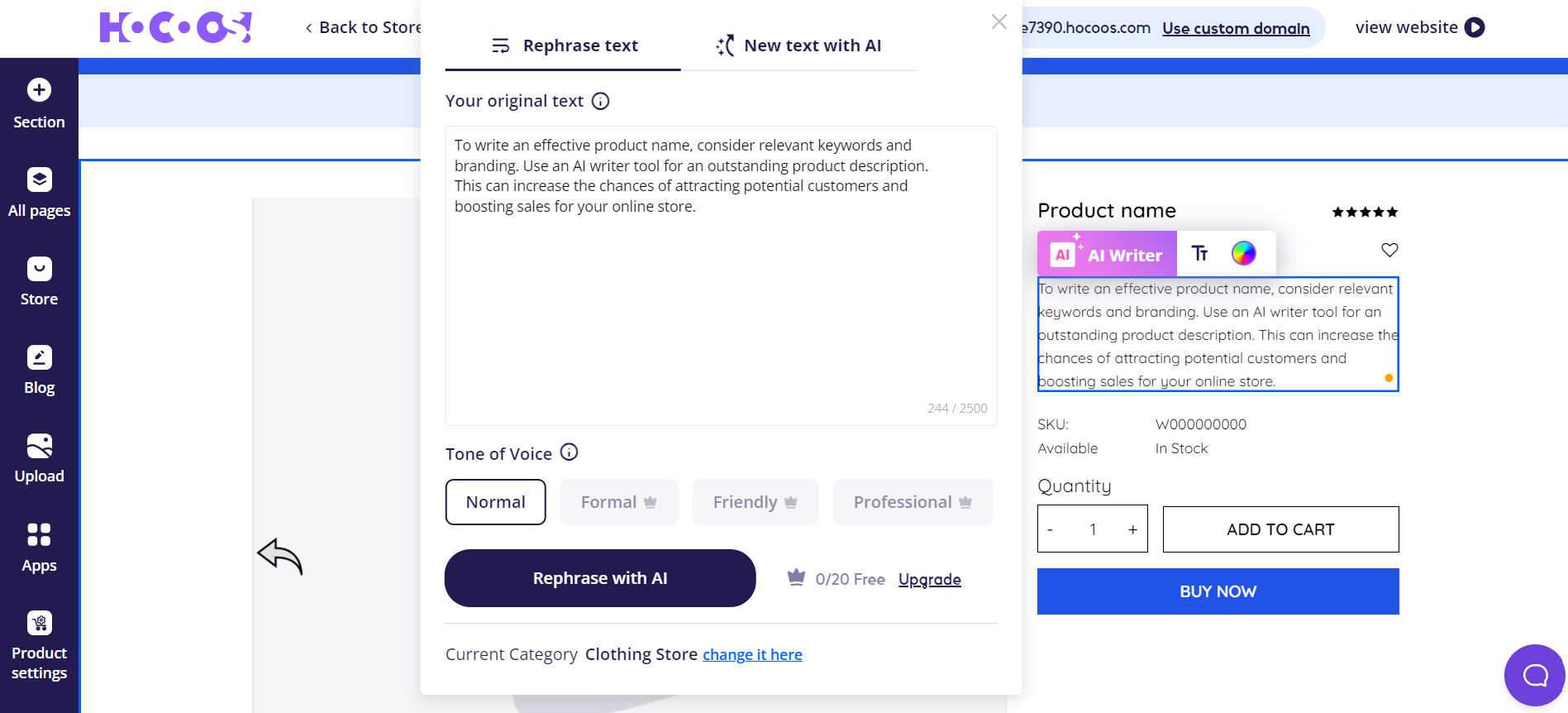
User Management
User ManagementAssesses the platforms’ capabilities in managing user roles, permissions, and accessibility.Score Components:
- Role Customization (40%): Flexibility in creating and defining user roles and
permissions. - Ease of Management (30%): User interface and tools for managing users.
- Access Control (20%): Effectiveness of access control measures for different user
levels. - Scalability (10%): Ability to manage a growing number of users efficiently.
 5.8
5.8
 0.0
0.0
🏆 Winner: Jimdo
. Jimdo and Hocoos have different approaches to user management.
- Jimdo’s Free, Start, and Basic Shop Plans allow website management by a single owner. The Grow Shop Plan permits two editors, including the account owner and one collaborator. The Business Plan extends collaboration to five editors, consisting of the account owner and four collaborators. The Unlimited Plan provides unlimited editors, fostering a collaborative team environment. The VIP Plan, designed for online stores, does not specify a limit on editors for websites.
- Hocoos does not allow to have multiple users for editing your website.
Jimdo’s user management capabilities are more flexible and scalable, making it a better choice for teams of different sizes.
Additional Features

|

|
|
|---|---|---|
|
SSL Certificate |
|
|
|
Custom Domain |
|
|
|
Free Custom Domain Included |
|
|
|
International Domains |
|
|
|
Mobile Responsive |
|
|
|
Page Speed |
|
|
|
Website Builder Mobile App |
|
|
|
Convert a Website To An App |
|
|
|
Website Analytics |
|
|
|
Multilingual Sites |
|
|
|
Multiple Users |
|
|
User Feedback
Jimdo, a website builder platform, receives mixed reviews from users. Positive feedback highlights its ease of use, no-code editor, and quick website development for basic sites. However, criticisms include outdated design, limited templates, and concerns about pricing transparency. Some users appreciate it for simple projects, while others find it lacking for more complex websites. Common issues include restricted SEO in the free tier, support limitations, and late responses. The overall impression suggests Jimdo may suit beginners but could be less ideal for those seeking advanced features or modern designs.
Hocoos does not have any reviews on G2, making it challenging to gauge user sentiment. This lack of feedback could be due to its relatively new presence in the market or limited user base. When comparing Jimdo vs Hocoos, potential users might consider Jimdo’s established user feedback despite its mixed nature, while Hocoos remains an unknown entity in terms of user experience.
The making of this blog
We followed a clear, step-by-step process to write and research this article.
FAQ
Which platform is better for beginners, Jimdo or Hocoos?
Can I use both Jimdo and Hocoos for ecommerce?
How do Jimdo and Hocoos differ in terms of customization and design flexibility?
What are the major differences in pricing and value between Jimdo and Hocoos?
Which platform offers better hosting quality, Jimdo or Hocoos?
How do Jimdo and Hocoos compare in terms of website speed optimization?
Which platform has better customer support, Jimdo or Hocoos?
Are there any significant differences in AI capabilities between Jimdo and Hocoos?










